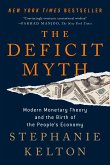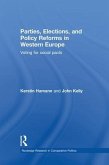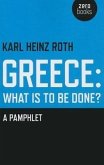Recent Eurozone reforms mark the most profound deepening of European integration since Maastricht. The Politics of Eurozone Reforms analyses how member states formed preferences in the politics of these reforms, and how preferences translated into policy outcomes on the European level. The chapters summarize insights on the role of different actors and institutions from four datasets based on 200 expert interviews, the analysis of 5000 policy documents and constitutional court cases in all EU member states. The findings confirm some common wisdom, dispel some myths, and provide insight into mechanisms facilitating further reforms. While quantitative analyses show that 'Northern' and 'Southern' member states were deeply divided, case study chapters provide a more refined view. Empirical data also indicates that reform decisions were dominated by governments and EU institutions but dispel the notion that Germany alone imposed its preferred policy. This book goes further and unpacks the legacies of the EMU crisis that make future reforms dependent on the reduction of financial sector risks, which is a necessary condition for rebuilding trust and restarting the gradual convergence of Eurozone reform preferences
Hinweis: Dieser Artikel kann nur an eine deutsche Lieferadresse ausgeliefert werden.
Hinweis: Dieser Artikel kann nur an eine deutsche Lieferadresse ausgeliefert werden.








